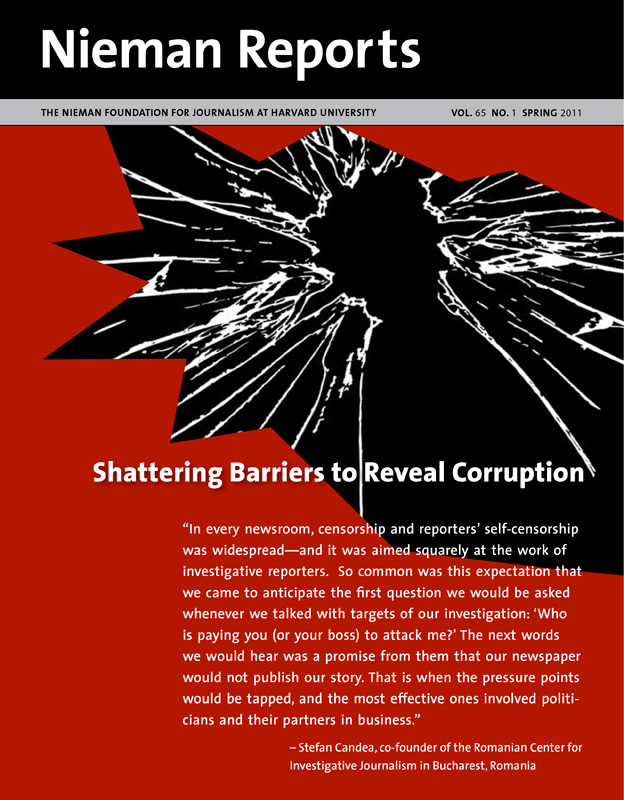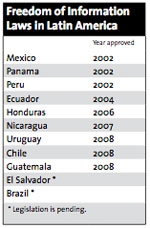Aristotle insisted that "by doing just acts we come to be just; by doing self-controlled acts, we come to be self-controlled; and by doing brave acts, we come to be brave." Transparency in the actions of powerful officials can only be attained when citizens become zealous protectors of the public's interests. Access to information that is held too tightly by government officials must be opened to citizens; this is paramount to accountability, and transparency is the most effective tool to prevent corruption.
In 2000 I became president of Panama's chapter of Transparency International. Aware that my country lacked effective legislation to secure public access, I contacted several press and law organizations throughout the continent as I searched for a model law from which to draft ours. I could find not one comprehensive legislation authorizing freedom of information. A few regulations here and there hinted at rights that permitted citizens to be informed about certain activities. I was shocked. Given the uphill battle many Western journalists in developed nations faced in investigating government corruption—when they had the backing of freedom of information acts—for reporters and editors in Panama, trying to do these stories was an impossible proposition.
While we were pushing our initiative through a lengthy and difficult process before a reluctant Congress and an adverse executive,RELATED ARTICLE
“Exposing Corruption when Illegal Activity is Business as Usual”
- Fernando Berguido the interim government of Valentin Paniagua of Peru—in place after the fall of President Alberto Fujimori—issued in 2001 an executive order that for the first time in our region set forth comprehensive freedom of information norms. A law was passed the following year.
Since then we've seen important progress in the push for accountability. It's about time. After all, Sweden adopted the first Freedom of Information Law in 1766.
Fernando Berguido, a 2011 Nieman Fellow, is a lawyer and the publisher and editor of La Prensa, Panama's leading newspaper. He was a Fulbright scholar at the University of California, Los Angeles School of Law, where he earned a Master of Law degree. He also is a former president of the Panama chapter of Transparency International.
In 2000 I became president of Panama's chapter of Transparency International. Aware that my country lacked effective legislation to secure public access, I contacted several press and law organizations throughout the continent as I searched for a model law from which to draft ours. I could find not one comprehensive legislation authorizing freedom of information. A few regulations here and there hinted at rights that permitted citizens to be informed about certain activities. I was shocked. Given the uphill battle many Western journalists in developed nations faced in investigating government corruption—when they had the backing of freedom of information acts—for reporters and editors in Panama, trying to do these stories was an impossible proposition.
While we were pushing our initiative through a lengthy and difficult process before a reluctant Congress and an adverse executive,RELATED ARTICLE
“Exposing Corruption when Illegal Activity is Business as Usual”
- Fernando Berguido the interim government of Valentin Paniagua of Peru—in place after the fall of President Alberto Fujimori—issued in 2001 an executive order that for the first time in our region set forth comprehensive freedom of information norms. A law was passed the following year.
Since then we've seen important progress in the push for accountability. It's about time. After all, Sweden adopted the first Freedom of Information Law in 1766.
Fernando Berguido, a 2011 Nieman Fellow, is a lawyer and the publisher and editor of La Prensa, Panama's leading newspaper. He was a Fulbright scholar at the University of California, Los Angeles School of Law, where he earned a Master of Law degree. He also is a former president of the Panama chapter of Transparency International.




